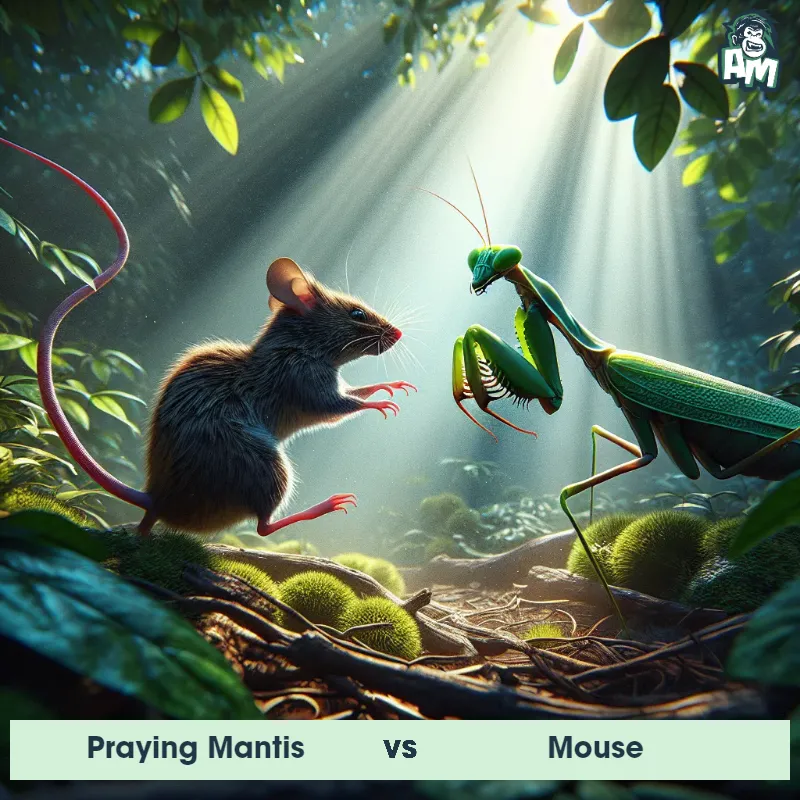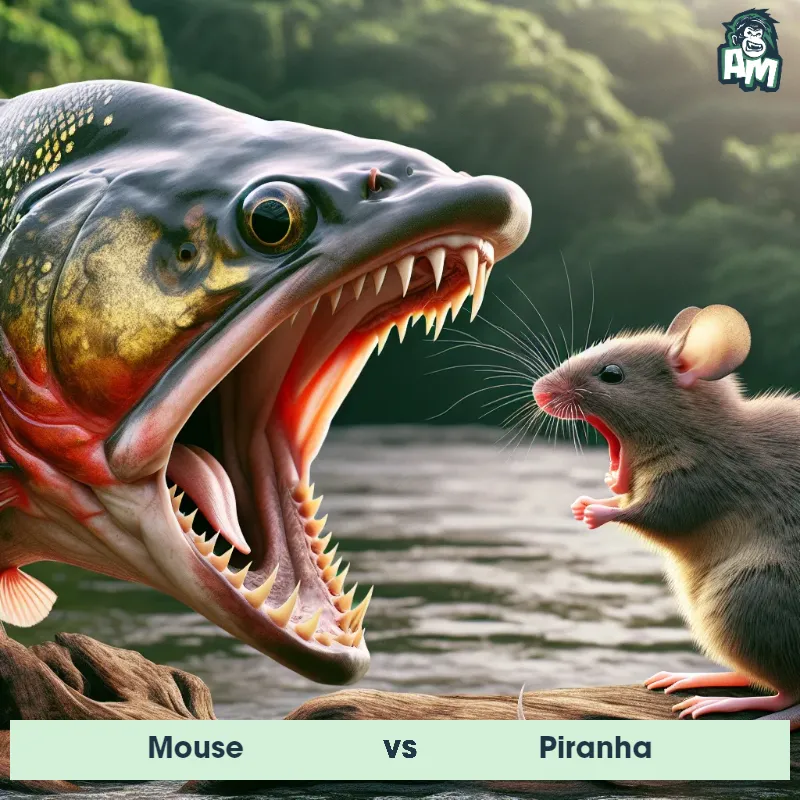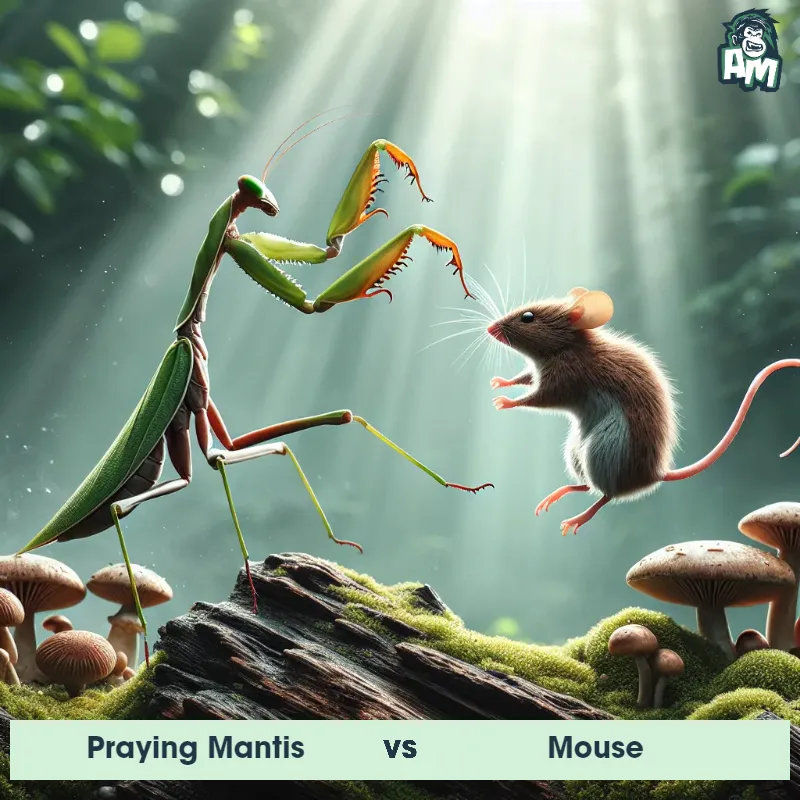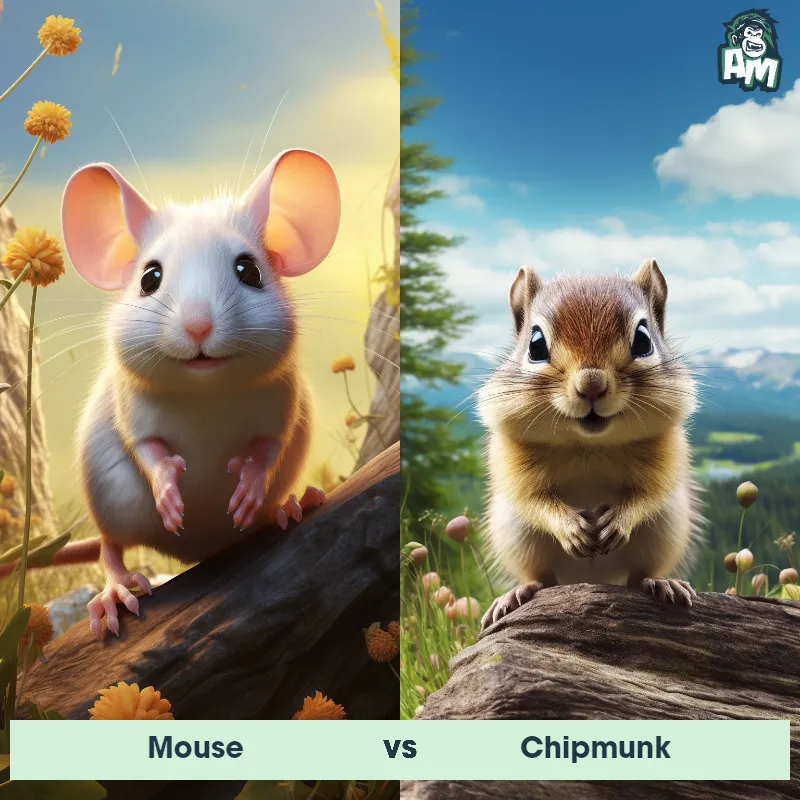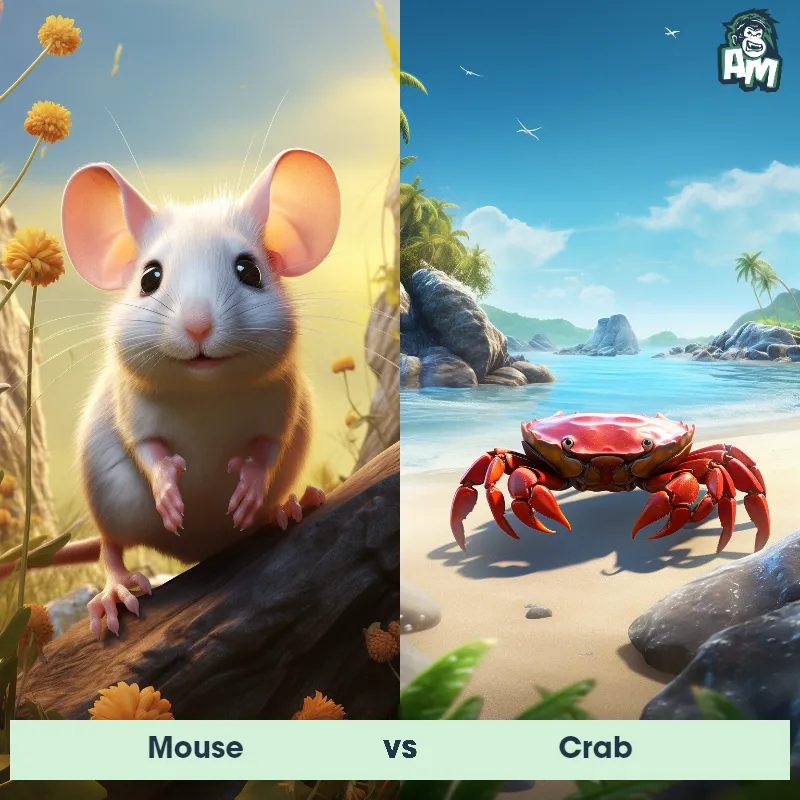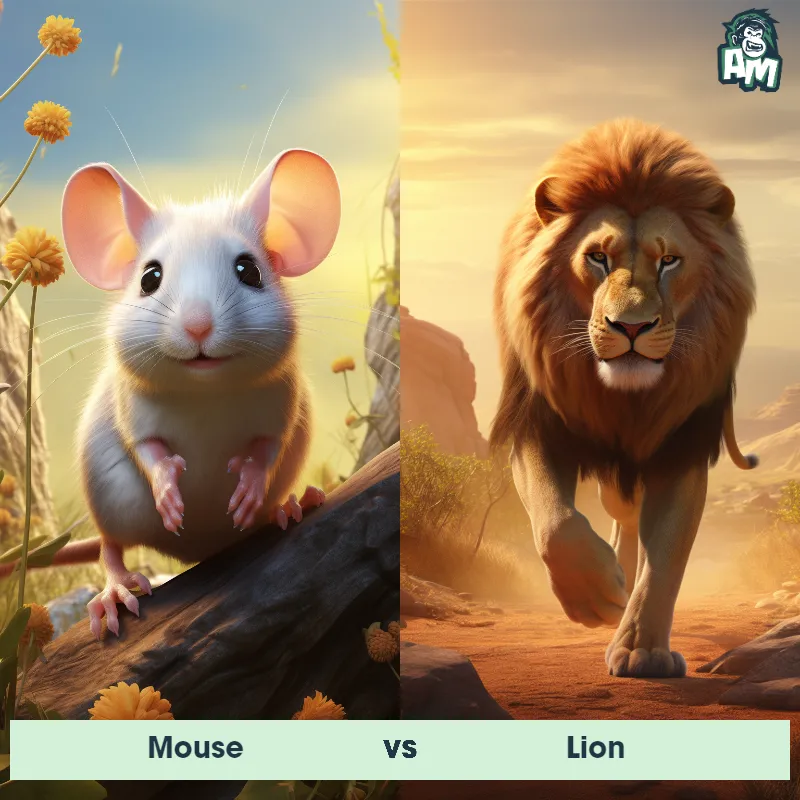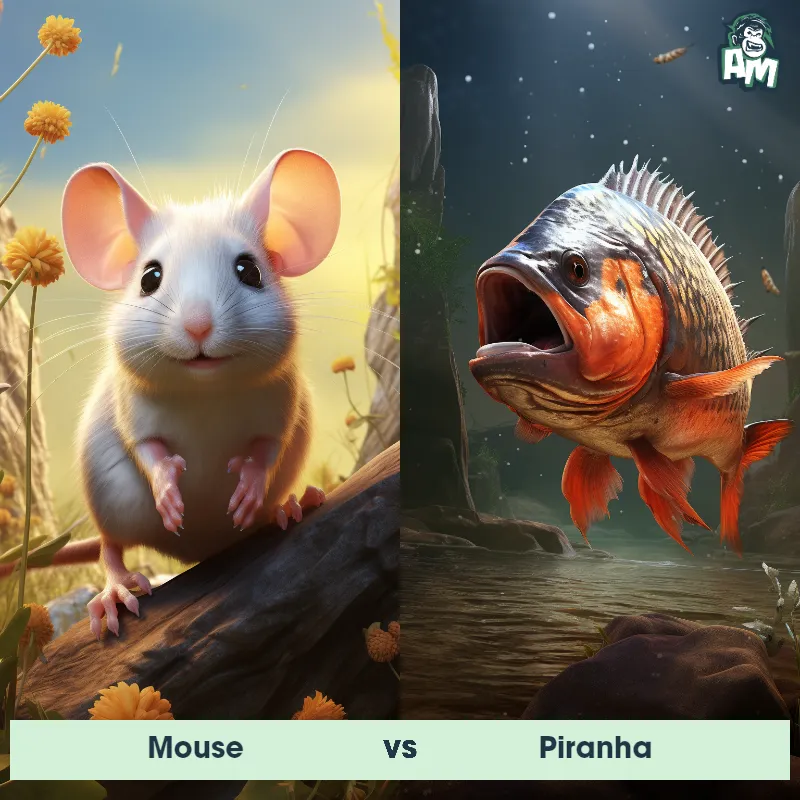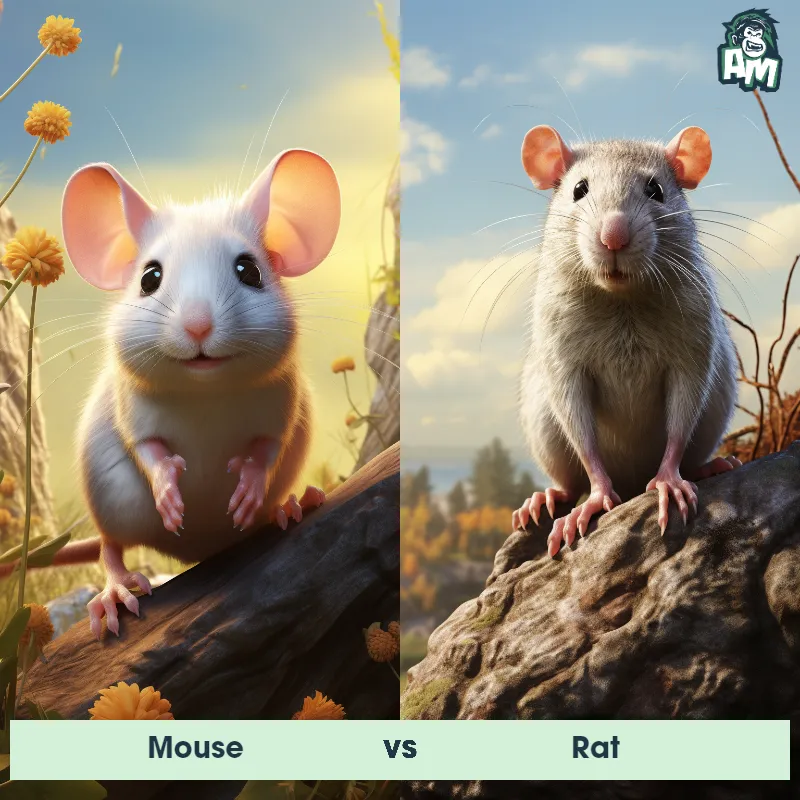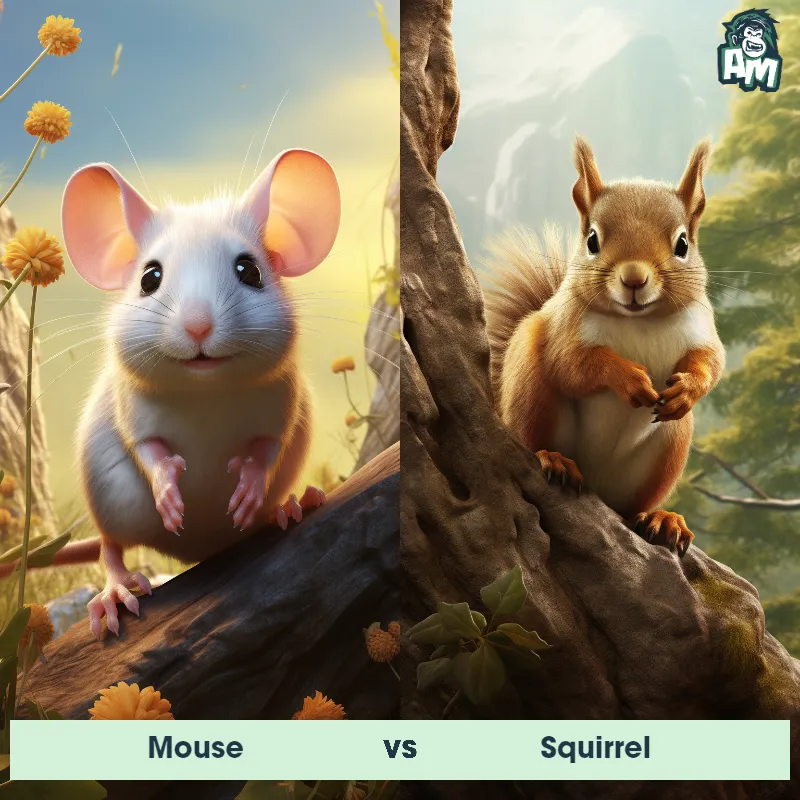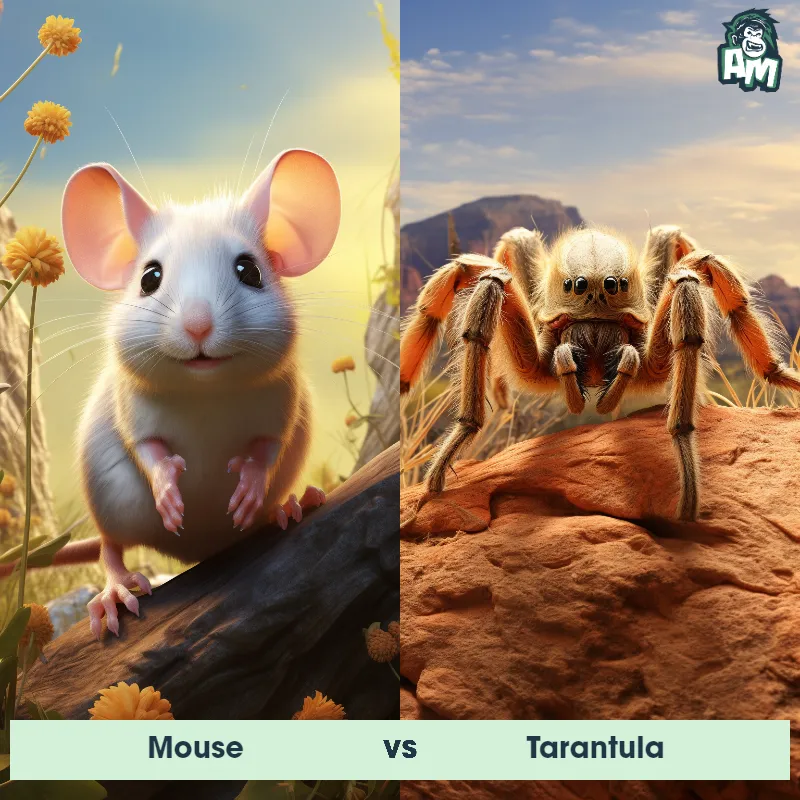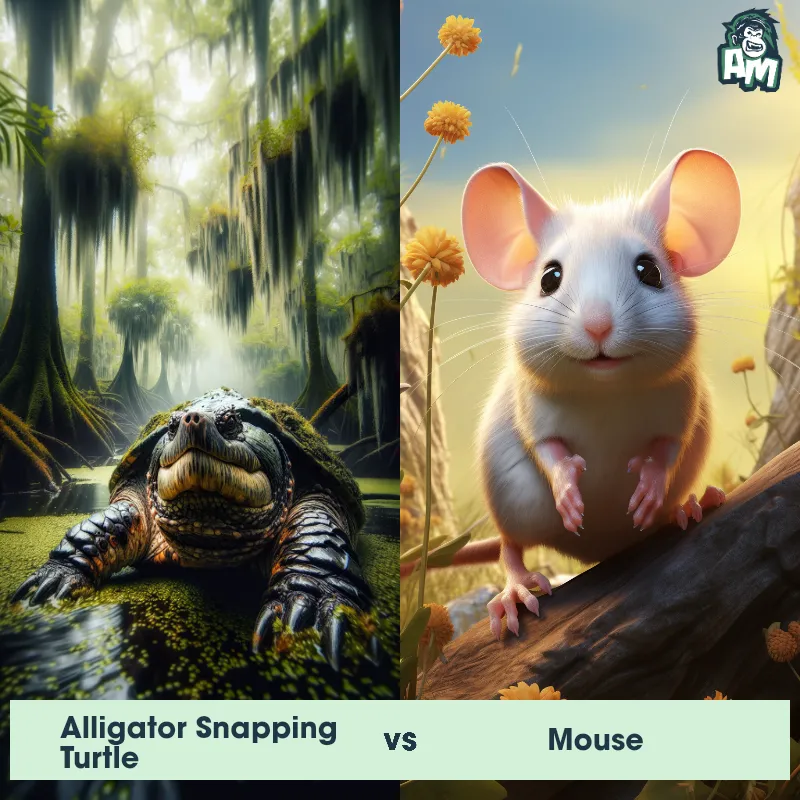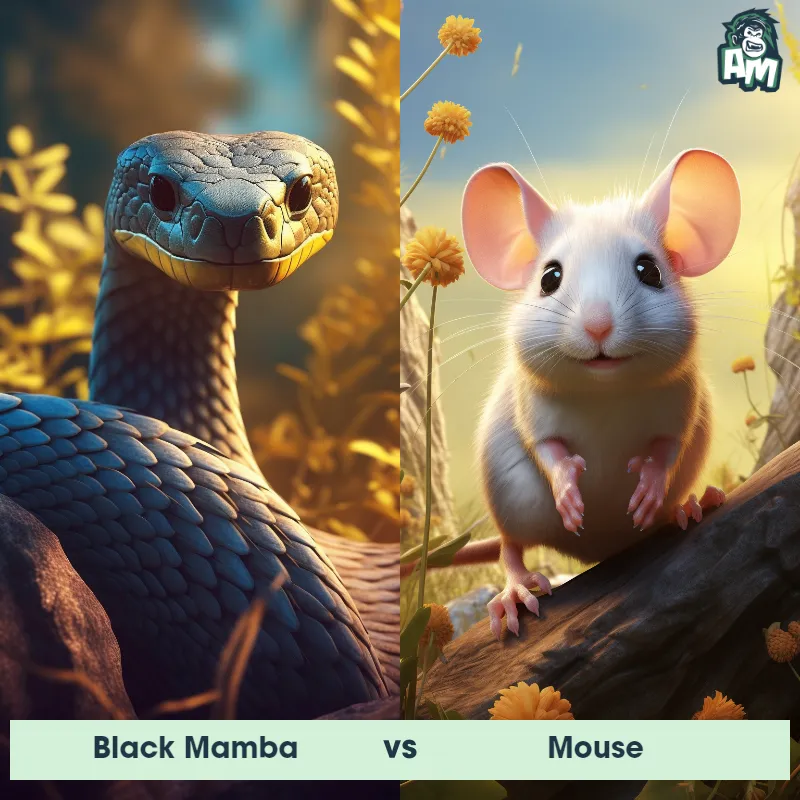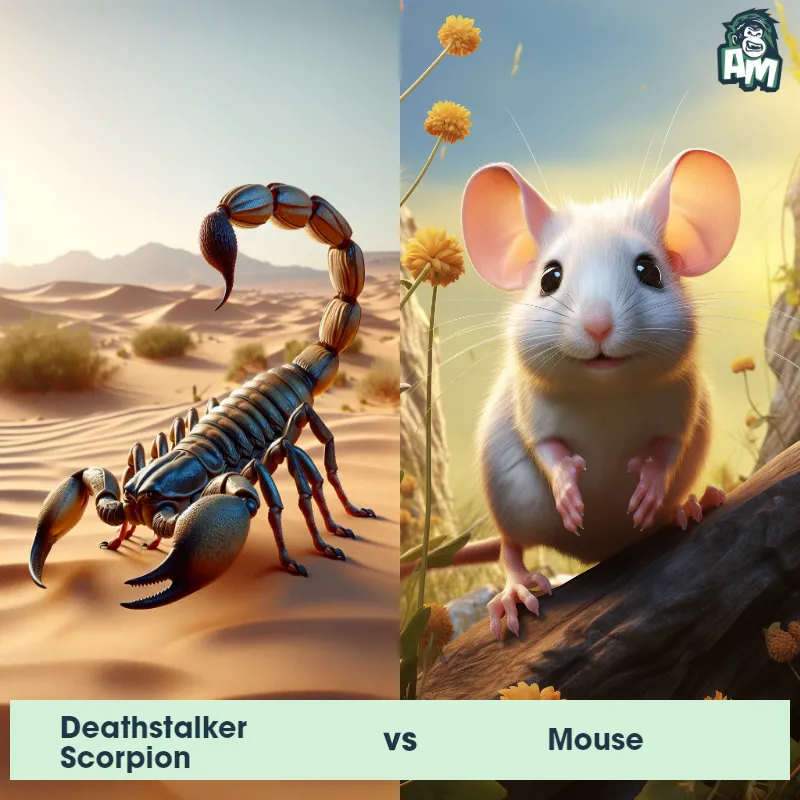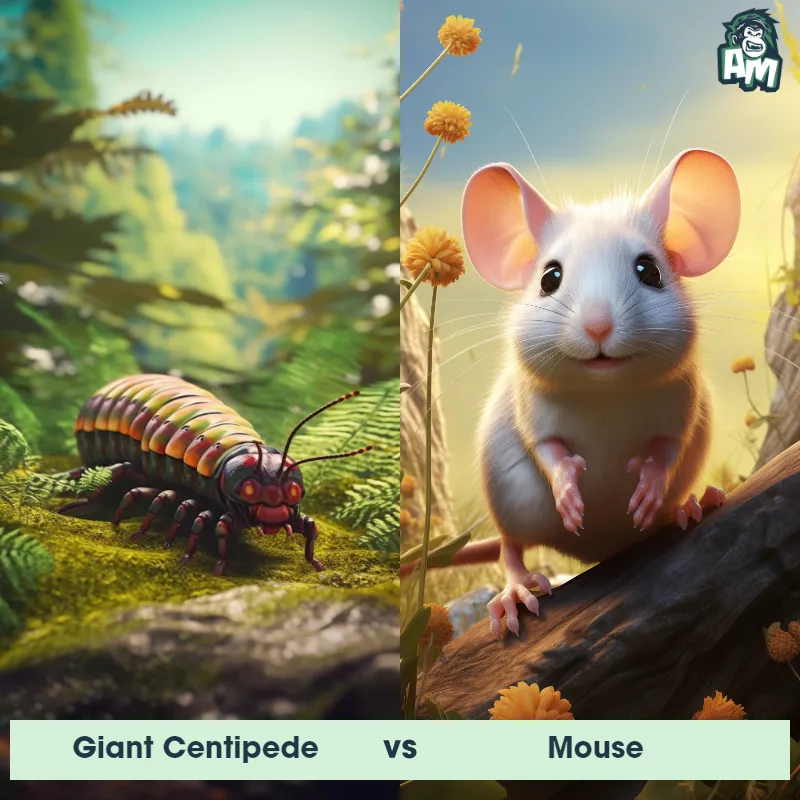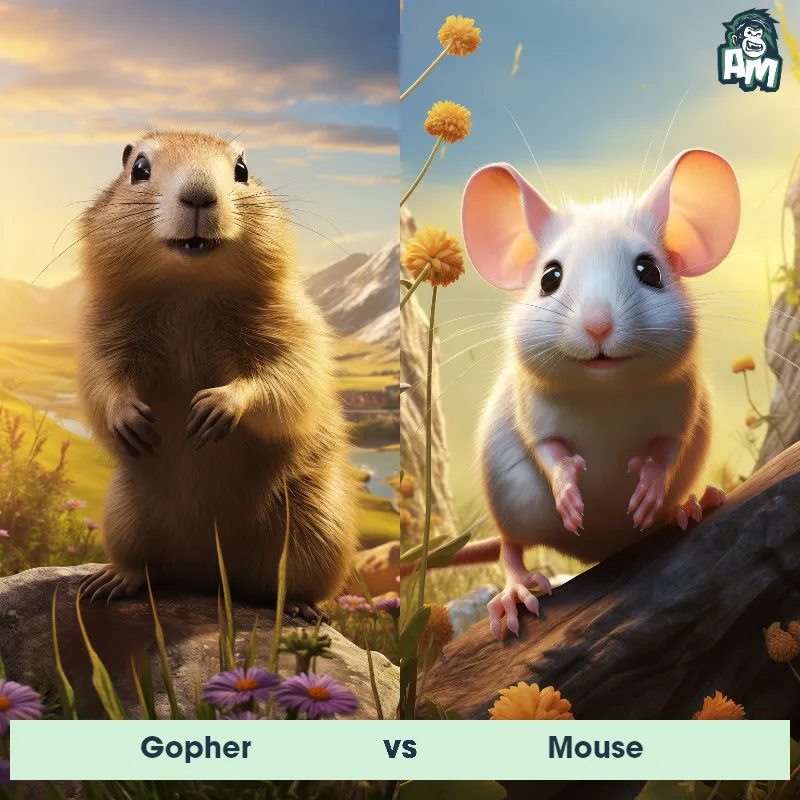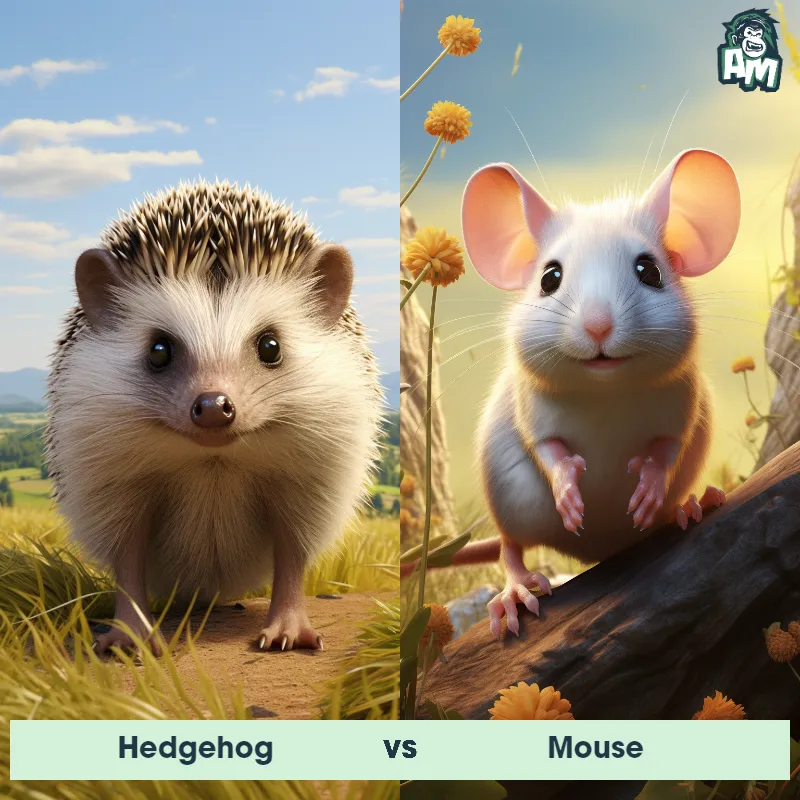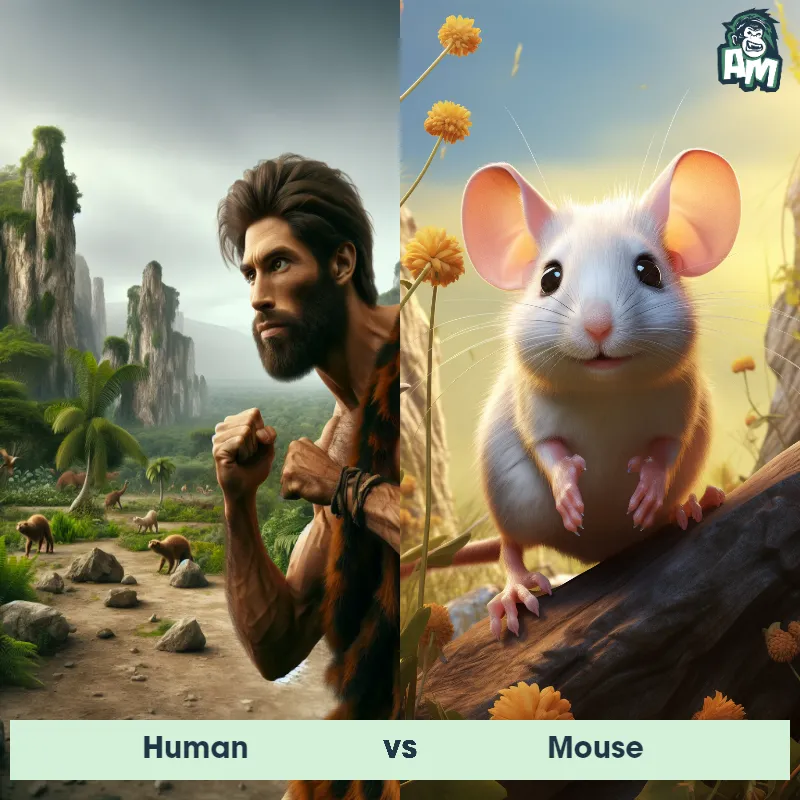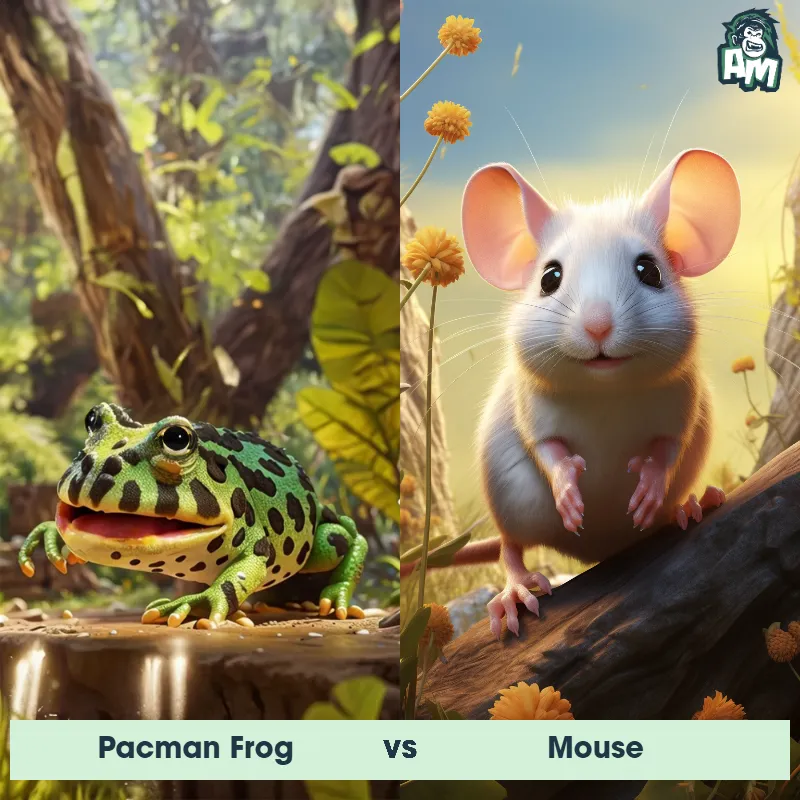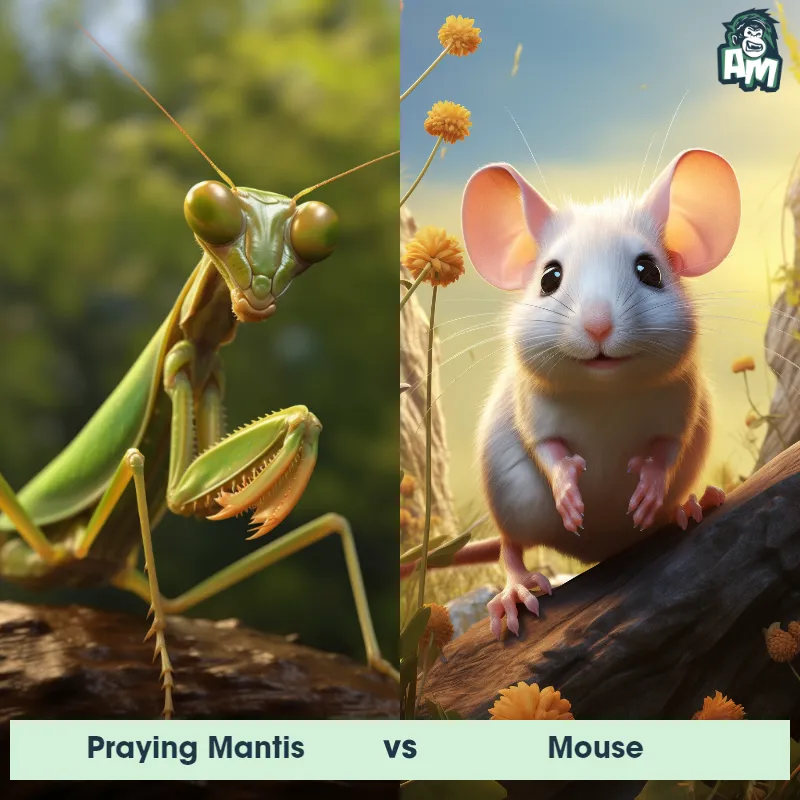The Mouse
The Mouse, also known as Mus musculus, is a small mammal that belongs to the rodent family. It is known for its tiny size, typically measuring 2.5 to 4 inches in length, excluding the tail. Mice have a pointed snout, small rounded ears, and a long, slender tail. They are primarily herbivores, although some species are omnivorous. Mice are highly adaptable and can be found in various habitats worldwide, including forests, fields, and even human homes. They reproduce rapidly, with females capable of giving birth to litters of up to 12 pups every 19 to 21 days.
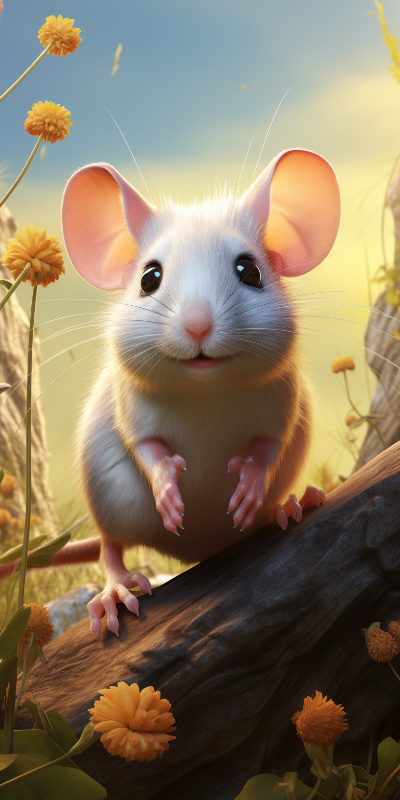
| Mouse | |
|---|---|
| Size | 1.5 to 3.5 inches (3.8 to 8.9 cm) |
| Weight | 0.5 to 1 ounce (14 to 28 grams) |
| Speed | 8mph (13km/h) |
| Key Strength | Agility and speed |
| Biggest Weakness | Small size and lack of defensive mechanisms |
| Scientific Name | Mus |
| Family | Muridae |
| Habitat | Various, including fields, forests, and human dwellings |
| Geography | Worldwide |
| Diet | Omnivorous, predominantly plant material and insects |
| Lifespan | 1 year - 3 years |

The Mouse
The Mouse, also known as Mus musculus, is a small mammal that belongs to the rodent family. It is known for its tiny size, typically measuring 2.5 to 4 inches in length, excluding the tail. Mice have a pointed snout, small rounded ears, and a long, slender tail. They are primarily herbivores, although some species are omnivorous. Mice are highly adaptable and can be found in various habitats worldwide, including forests, fields, and even human homes. They reproduce rapidly, with females capable of giving birth to litters of up to 12 pups every 19 to 21 days.
Fun Fact: Mice have an incredible ability to squeeze through tiny openings due to their flexible skeletons and soft bodies, which allows them to fit into spaces as small as a dime.
| Mouse | |
|---|---|
| Size | 1.5 to 3.5 inches (3.8 to 8.9 cm) |
| Weight | 0.5 to 1 ounce (14 to 28 grams) |
| Speed | 8mph (13km/h) |
| Key Strength | Agility and speed |
| Biggest Weakness | Small size and lack of defensive mechanisms |
| Scientific Name | Mus |
| Family | Muridae |
| Habitat | Various, including fields, forests, and human dwellings |
| Geography | Worldwide |
| Diet | Omnivorous, predominantly plant material and insects |
| Lifespan | 1 year - 3 years |
Match Highlights
Mouse Matchups
We use AI to simulate matchups between the Mouse and other animals. Our simulation considers size, strength, and natural predatory behaviors to determine the most likely outcome.

Can't find the Matchup you want?
Create Your Own MatchupMouse: Diet, Predators, Aggression, and Defensive Behaviors
What do mice eat?
Mice are omnivores, so they have a varied diet that includes seeds, nuts, fruits, grains, insects, and small invertebrates. They are also known to scavenge for food in human environments, feeding on leftovers and crumbs.
Do mice have any predators?
Yes, mice have several predators in the wild, including owls, hawks, snakes, foxes, and domestic cats. These predators hunt mice for food, making them vulnerable to attacks.
Are mice aggressive?
Mice are generally not aggressive towards humans, but they can display aggression towards other mice, especially when competing for resources like food or territory. They may also exhibit aggressive behavior when feeling threatened.
Do mice fight?
Mice are territorial animals, and they may engage in fights with other mice to establish dominance or defend their territory. These fights can be vicious and may involve biting, scratching, chasing, and vocalizations.
How do mice defend themselves?
Mice have several defense mechanisms to protect themselves from predators, including fleeing, hiding, and freezing in place to avoid detection. They also use their keen senses of smell, hearing, and touch to detect danger and escape quickly.
What is mice's biggest weakness in a fight?
One of the biggest weaknesses of mice in a fight is their small size and relatively fragile bodies. They are easily overpowered by larger predators or aggressive competitors, making them vulnerable to attacks. Additionally, mice have limited physical strength and agility compared to some of their predators, further compromising their ability to defend themselves in a fight.
Fun Fact: Mice are expert climbers and are capable of scaling vertical surfaces with ease, thanks to their sharp claws and strong hind limbs.
Fun Fact: Contrary to popular belief, mice are not actually blind, and they possess relatively good vision, especially when it comes to detecting motion. They are also known for their excellent sense of hearing and can communicate through a wide range of vocalizations, including squeaks, chirps, and ultrasonic sounds.



